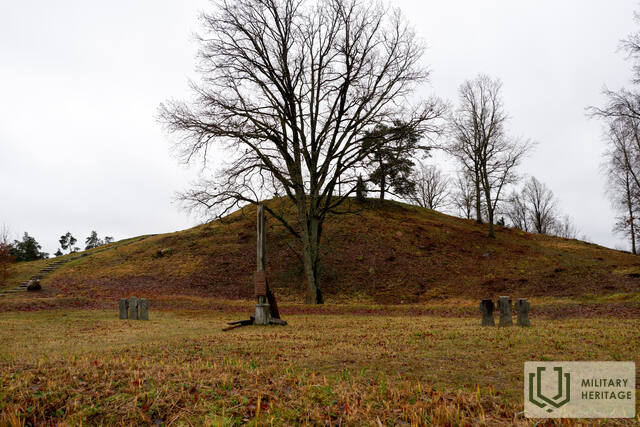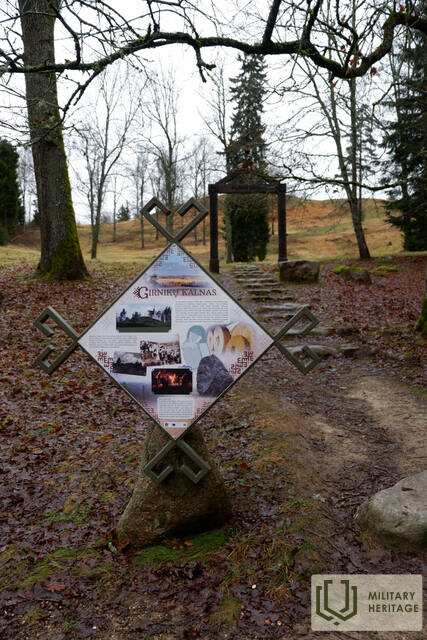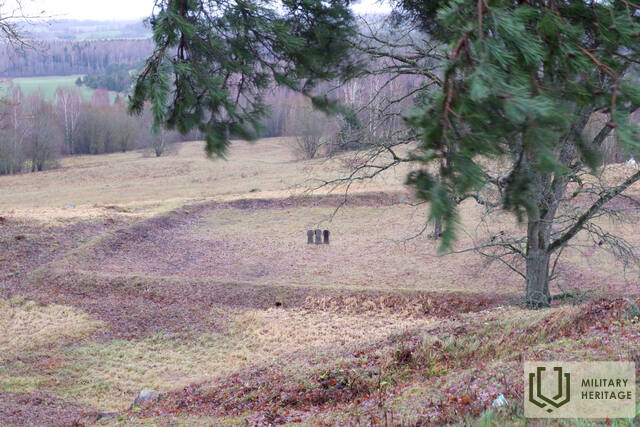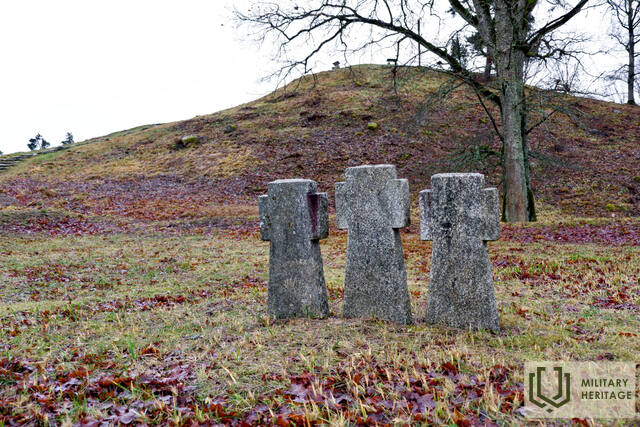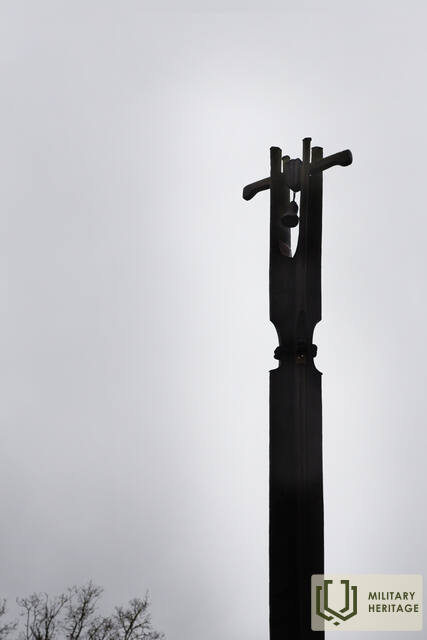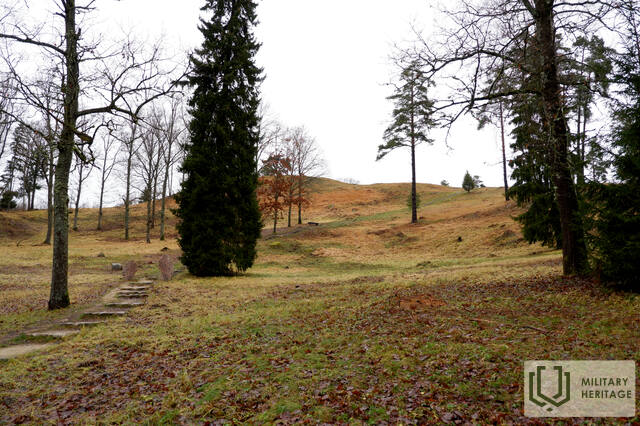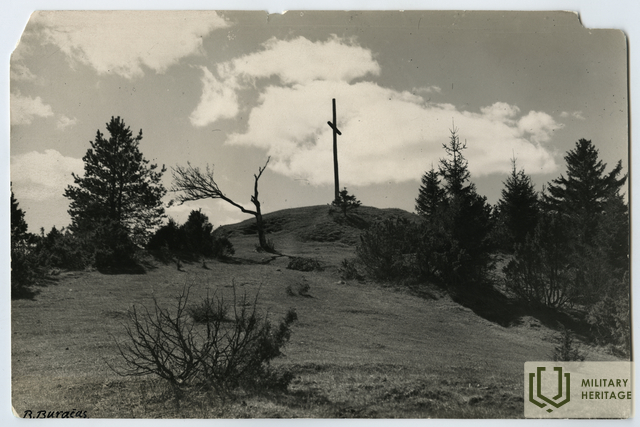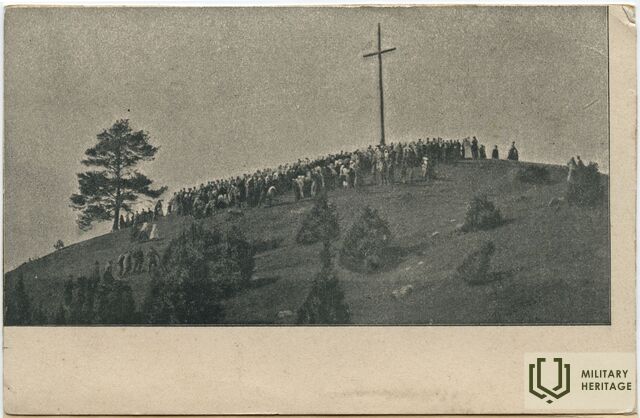Girnikai Mound Battle site

The mound is located in the Šiauliai district, it is the highest mountain in the district, rising 183.4 m above sea level.
Although there is no direct evidence of the mountain's connection with the Balt culture or its artificial origin, local legend tells that the mountain was built from the corpses of slain enemies by the giant Anculis. Midsummer has been celebrated on the mountain for more than 100 years. On April 24, 1905, to commemorate the anniversary of the lifting of the press ban, a monumental cross was erected on the mountain at the initiative of priest J. Vizbars and with the support of the Counts Pliaterius, which was later destroyed by the Soviet authorities. During the First World War, around 1915, fierce battles took place near the Girnikai Mound, some of the dead, about 240 German soldiers, were buried at its northern foot.
Today, a wooden cross with a memorial plaque and three symbolic concrete crosses stand in memory of those who died in 1914-1918 and are buried here.
Used sources and references:
https://vietosdvasia.lt/item/girniku-piliakalnis/
https://welovelithuania.com/girniku-sventkalnis/
https://lt.wikipedia.org/wiki/Girnik%C5%B3_piliakalnis
https://www.pamatyklietuvoje.lt/details/girniku-sventkalnis/9194
https://kvr.kpd.lt/#/static-heritage-detail/cb69b0fd-8341-4db3-a023-18cedfa5fb5c/true
https://kvr.kpd.lt/#/static-heritage-detail/008c8d90-3ca7-4557-96f2-16ddb4e0861c/true




